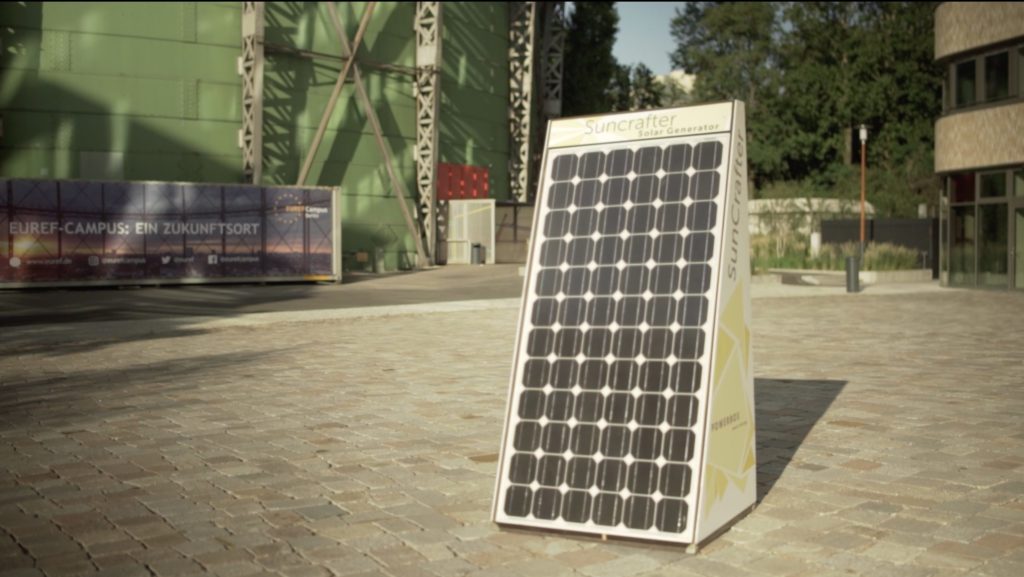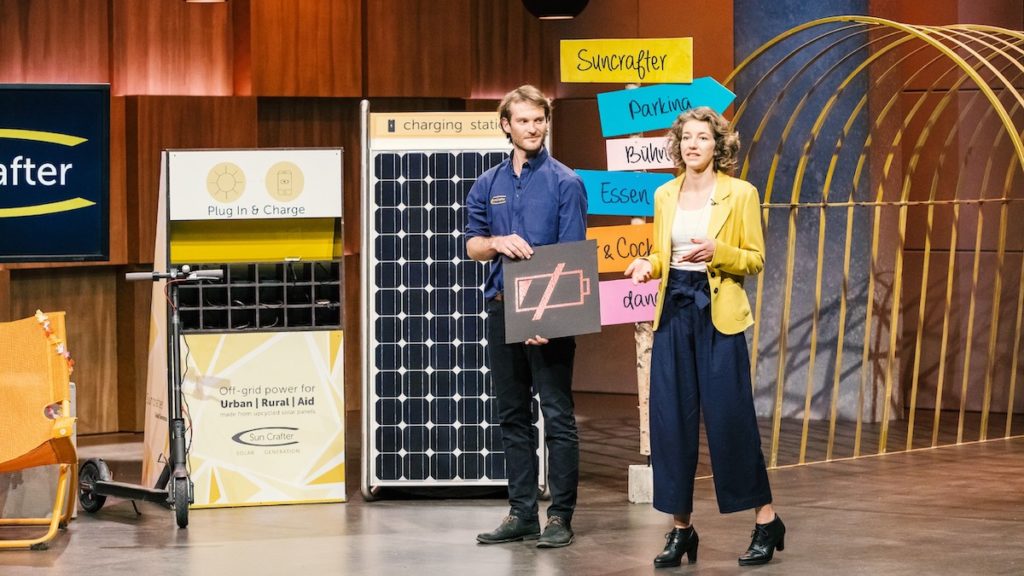Solar panels don’t last forever. While they can enjoy a long life in the sun, they do eventually outlive their use. However, there are also millions of functioning solar panels that are disposed of in an inefficient and wasteful manner every year. The investors behind SunCrafter were all too familiar with this wastage and created the company to come up with a solution. In order to provide a second life to these modules, the team behind SunCrafter came up with their patented EasyPanel technology. This startup’s solution can see energy produced independently from anywhere in the world – and the team has big goals for their tech. Let’s dive into what this startup is really about.
The Humanitarian Focus Behind Clean Energy

Founded in Berlin in 2019, SunCrafter produces and provides solar systems which offer energy access independent from existing power grids. This means that the product you see above can function in both urban and rural environments, producing clean and renewable energy all on its own. Based on upscaled solar modules, the startup’s technology has enabled it to create a wide range of products, and though it was born from the desire to reduce solar panel wastage in Germany, its CEO, Lisa Wendzich, wants this tech to serve a humanitarian purpose around the world: “Apart from the solar e-waste problem, which is an exponentially growing problem around the world […] we are really trying to fix the energy access problem by providing this super affordable and very easy tech system.”
While SunCrafter has many goals, its core project is the SunCrafter EasyPanel. “That’s pretty much just a disused solar panel that we up-cycle with our particular technology,” Lisa clarified in a conversation during the World Energy Congress in Abu Dhabi. This panel provides a lower voltage output (200W) which means it is only a viable solution for small scale electrical appliances. However, you can, for instance, charge your device right off the panel if you so wished. Though this solution has its limitations, it could present a viable opportunity for those less fortunate when it comes to accessing more affordable and healthier energy solutions.
Speaking with Lisa, she also explained that the EasyPanel technology was actually “initially planned for humanitarian aid – refugee camps.” Its solution is simple, easy-to-use and requires little maintenance once installed, which she believed to be a “crucial aspect when you’re looking into energy access.” Impoverished communities around the world are often forced to use the likes of kerosine to power and heat their homes. Not only is this solution polluting our planet, but it is also extremely bad for our health. Therefore, SunCrafter believes that its work could offer a solution for the global challenge to provide clean and affordable energy at the speed that it is required. How does its solution work? The answer is threefold.
Efficiency, Inclusivity & Sustainability: The Goals of SunCrafter

Efficiency: SunCrafter relies upon the sun as a ubiquitous and efficient source of energy. With this efficient solution, it can minimise its products’ carbon footprint and use as little resources as possible. “As you’re independent of the grid, you can put them anywhere. It’s really a way to adapt an infrastructure in a city in a very fast and flexible way,” Lisa explained.
Inclusivity: SunCrafter also aims for its solution to be available to anyone. “The sun is an ideal partner in this regard: it shines around the world and on everyone.” As a solution that could see energy generated even in the most remote places on the planet; the startup has no desire to limit the extent to which its solution could aid humanitarian causes.
Sustainability: Solar power is as sustainable as it gets. However, when combined with the startups’ goal of up-cycling solar panels that have been decommissioned, it’s clear that sustainability is a core tenant of this company. “Our products increase the lifetime of existing modules and other components. Through this, we minimise resource depletion, energy usage and CO2 emissions.” It also states that its work directly relates to the UN’s Sustainable Development Goals, specifically number 7, which states that individuals should aspire to “ensure access to affordable, reliable, sustainable and modern energy for all.”
Looking to the future, SunCrafter aims to expand into new markets, particularly micro-e-mobility. As the likes of e-scooters become commonplace in cities across the world, SunCrafter hopes to offer a more sustainable solution for the charging of these vehicles. With solar panel charging stations spread throughout a particular area, these transport alternatives could become even more popular in the next few years. While SunCrafter’s solution only caters to small-scale electrical appliances, its impact could be rather large.
Source: SunCrafter Webpage


